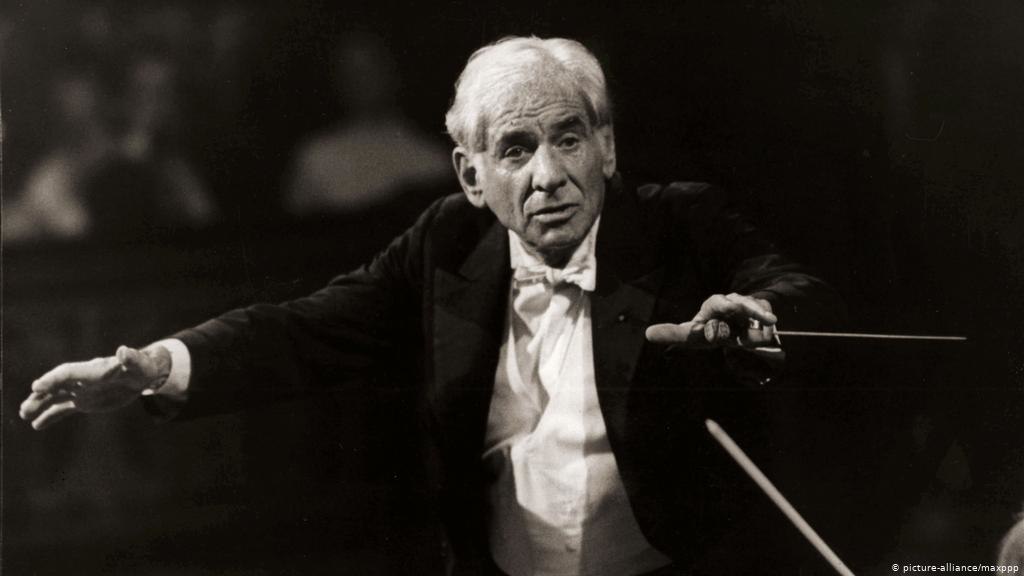
-
HOME
-
WHAT IS STANDOur Mission Our Values Our Help Contact
-
WHAT WE FIGHT FORReligious Freedom Religious Literacy Equality & Human Rights Inclusion & Respect Free Speech Responsible Journalism Corporate Accountability
-
RESOURCESExpert Studies Landmark Decisions White Papers FAQs David Miscavige Religious Freedom Resource Center Freedom of Religion & Human Rights Topic Index Priest-Penitent Privilege Islamophobia
-
HATE MONITORBiased Media Propagandists Hatemongers False Experts Hate Monitor Blog
-
NEWSROOMNews Media Watch Videos Blog
-
TAKE ACTIONCombat Hate & Discrimination Champion Freedom of Religion Demand Accountability
Leonard Bernstein Biopic Sparks Controversy Over What Some Call Its Antisemitism
The Anti-Defamation League (ADL) and Leonard Bernstein’s family have dismissed accusations of antisemitism related to the depiction of the iconic Jewish composer in the upcoming film Maestro.

The criticism centers on Cooper’s use of a large prosthetic nose, first revealed in stills released by Netflix last year. The indignation increased when a trailer for the film came out earlier this month.
Joel Swanson, a University of Chicago PhD student in Jewish history, posted, “This isn’t about making a non-Jewish actor look more like Leonard Bernstein; it’s about making a non-Jewish actor look more like a Jewish stereotype.” Swanson’s posting on X (Twitter) featured side-by-side comparative photos of Cooper in the film and Bernstein in real life.
“Throughout history, Jews were often portrayed in antisemitic films and propaganda as evil caricatures with large, hooked noses.”
Daniel Sugarman, the director of public affairs for the Board of Deputies of British Jews, called Cooper’s decision to “slap on a big nose” to portray Bernstein as “suspect,” noting that the actor had previously portrayed the Elephant Man—a character with grave physical deformities—without prosthetics.
In response to the controversy, Bernstein’s children—Jamie, Alexander and Nina Bernstein—posted the following statement on X:
“Bradley Cooper included the three of us along every step of his amazing journey as he made his film about our father. We were touched to the core to witness the depth of his commitment, his loving embrace of our father’s music, and the sheer open-hearted joy he brought to his exploration. It breaks our hearts to see any misrepresentations or misunderstandings of his efforts. It happens to be true that Leonard Bernstein had a nice, big nose. Bradley chose to use makeup to amplify his resemblance, and we’re perfectly fine with that. We’re also certain that our dad would have been fine with it as well. Any strident complaints around this issue strike us above all as disingenuous attempts to bring a successful person down a notch—a practice we observed all too often perpetrated on our own father.”
ADL, too, weighed in on the controversy, issuing a statement through a spokesman that “Throughout history, Jews were often portrayed in antisemitic films and propaganda as evil caricatures with large, hooked noses. This film, which is a biopic on the legendary conductor Leonard Bernstein, is not that.”
ADL was referencing the negative portrayal of Jews on stage and the big screen—a practice often called “Jewface,” a term that harks back to “blackface,” when white performers blackened their faces and affected mannerisms and attitudes calculated to portray stereotypical canards of African Americans. “Jewface” also refers to the often-debated subject of whether casting non-Jews as Jewish characters is morally wrong.
The nonprofit StopAntisemitism, for example, accuses the film’s producers (which include Steven Spielberg, himself Jewish) of inauthenticity and has characterized the casting of Cooper—a non-Jew—to portray a Jew as “sickening.”
Bernstein, who early in his career seriously considered changing his name to the less Jewish-sounding Leonard S. Burns, had difficulty coming to terms with his inherited religion, ultimately embracing his Jewish identity. While labeling his heritage both “a curse and a blessing,” he supported the Israeli state before its founding, often incorporated Hebrew into his talks and wrote no less than 20 Jewish-themed orchestral works during a long and distinguished career.






